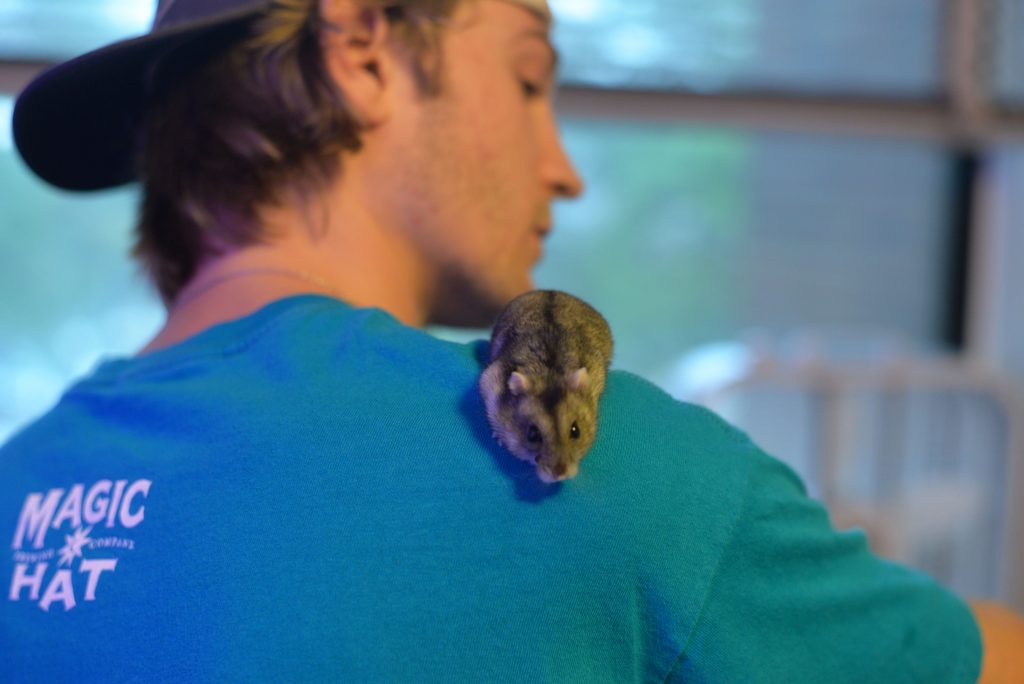
College is a time for new challenges: increased workload, dealing with different personalities and keeping yourself healthy without help from home. Some students add having a pet to this list, and whether you get a dog or a betta fish, a pet is a huge responsibility. Although having a pet can be a lot of fun, there are pros and cons to caring for another life that students need to consider.
Many students who live in on-campus housing and local apartments are not allowed to have pets because of Binghamton University or landlord policies. Students who are allowed to have pets where they are living have to consider whether or not they will be able to bring the pet home when they return on breaks or after graduation. If they can’t bring them home, those pets often end up in shelters or left behind on the streets.
Nicole Tolli, a senior majoring in English, has a Shih Tzu-Yorkie mix named Sophie, whom she purchased last September. For her, figuring out how Sophie would fit into her life at home was an important step before she went ahead with getting her.
“Being away isn’t for everyone, and dogs have also been a symbol of home for me since I was young,” she said. “While there are a few other reasons why I have her, one of the big ones was an attempt to make Binghamton more of a home. It was a family decision, especially because I’m graduating and the plan is to move back home, so Sophie would be living with my whole family. So it wasn’t just a decision I took lightly on my own.”
Beyond simply seeking a piece of home, students may adopt pets for comfort and support while experiencing depression, anxiety or stress at school.
Lyndsey Petrofsky, a senior double-majoring in business administration and theatre, has a Yorkie-Bichon mix, Snyder, whom she got in April of this year because she was seeking these sorts of benefits.
“I was dealing with a lot of personal issues, and heard about the therapeutic benefit of having a pet, so I decided to look into it,” she wrote in an email. “As soon as I met him, we bonded and I couldn’t leave without him.”
While animals can be cute and provide comfort, there are challenges to being a pet parent. In terms of veterinary visits alone, the average dog-owning household spends nearly $380 per year, according to the American Veterinary Medical Association.
Petrofsky, who lives on campus, advises other students considering adopting a pet to also think about how the time commitment of the animal will fit into your schedule.
“You are this animal’s caretaker and you need to take their needs into account,” she wrote. “Whether it’s getting dinner with friends off campus, going apple picking, or going home for a break, you need to figure out how your pet fits into the scenario, and what’s best for them and their health.”
Still, she explained that there are a lot of benefits to sharing your college experience with a pet.
“I love coming home from class, and having the little one get so excited to see me,” she wrote. “There’s something special about working on a project, having a small dog whimpering at you because he wants to be held and snuggled, and subsequently dropping your project to snuggle the baby.”
Tolli echoed this sentiment.
“They’ll love you when you’re sick, grumpy, happy, sad, hangry, really no matter what, your pet will want to be with you anyway,” she said. “The bond between my dog and I is something I’ll be forever grateful for, and I’m so, so lucky to have been able to bring her to college.”


